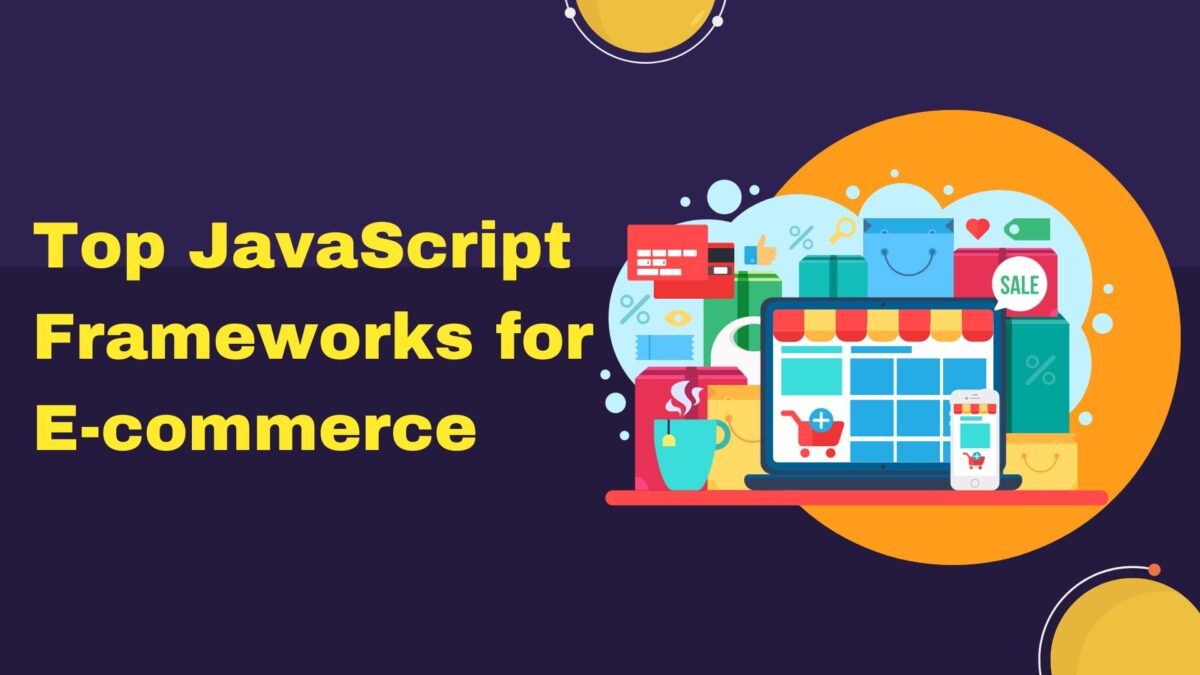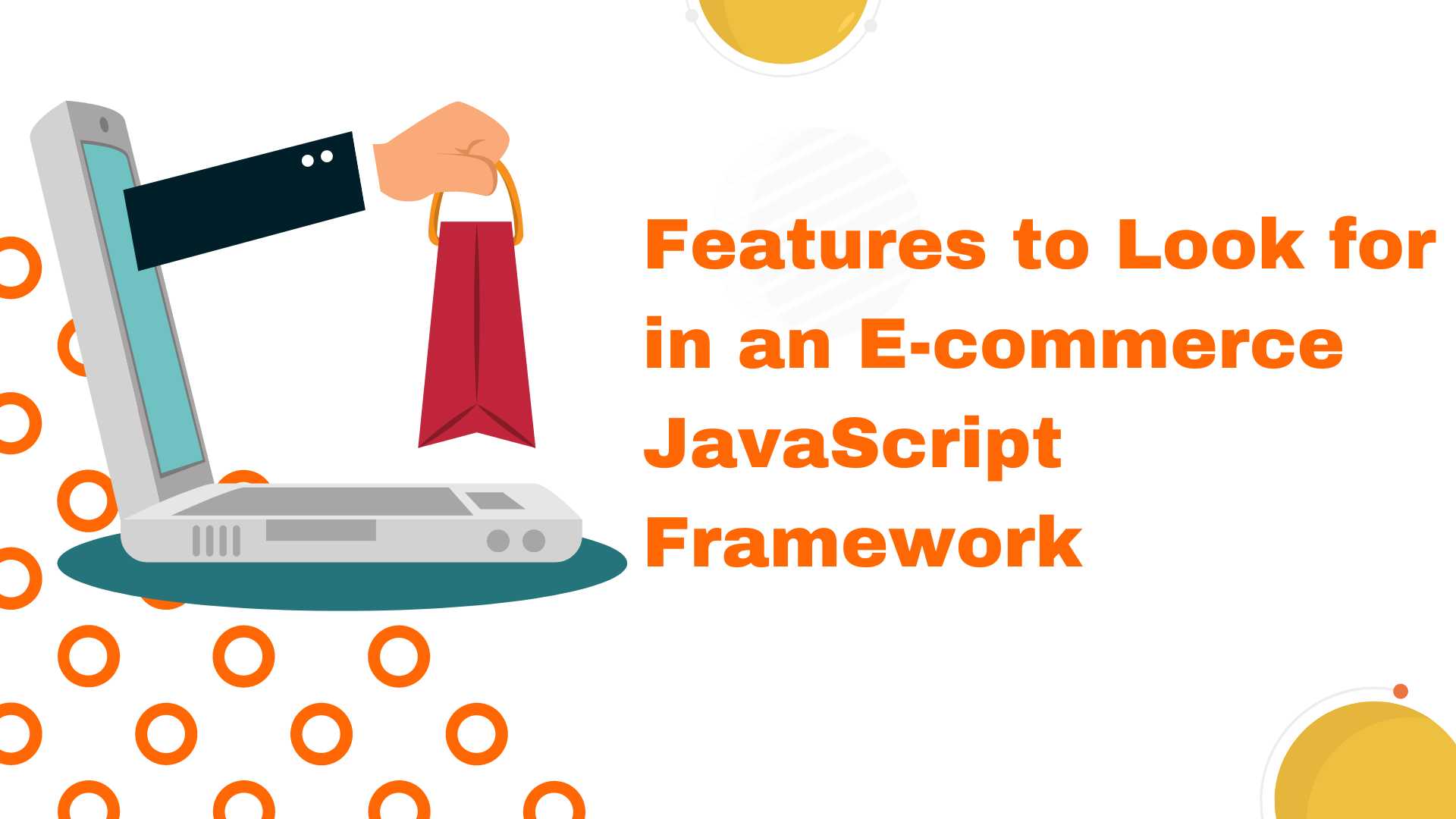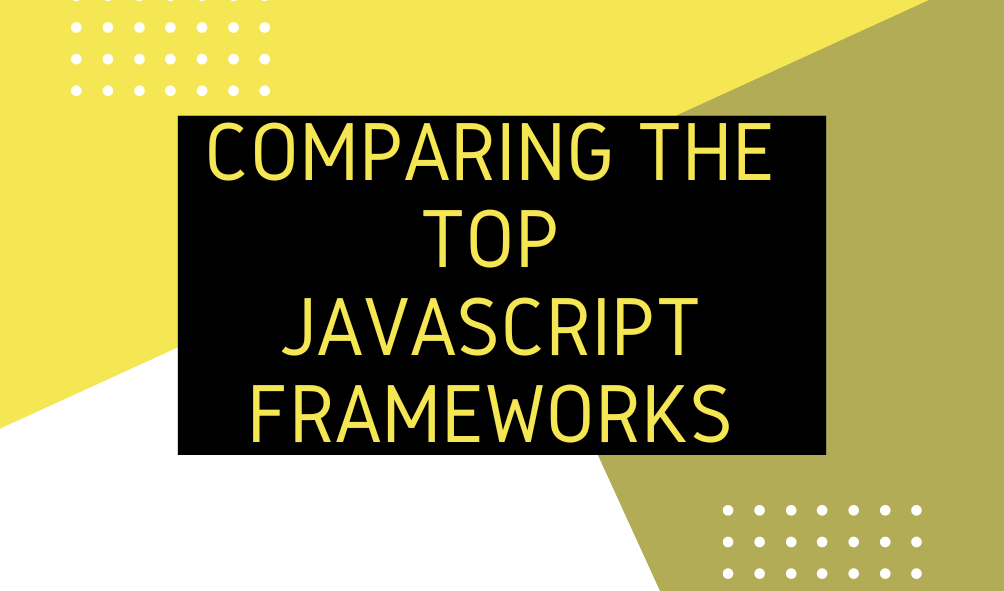
Are you looking to enhance your e-commerce platform with a powerful and versatile JavaScript framework? Look no further than this comprehensive guide to the top JavaScript frameworks for e-commerce. In this article, we’ll explore the benefits of using frameworks, key features to look for, and a comparison of the best options on the market.
As an e-commerce business owner, it’s crucial to have a platform that’s fast, responsive, and user-friendly. This is where JavaScript frameworks come into play. These frameworks provide pre-built modules and libraries that help developers create dynamic and interactive web pages that can visualize vast amounts of data, create rich animations, and manage complex user interactions in real-time.
JavaScript frameworks are essential for e-commerce businesses to stay ahead of the competition. They offer a range of benefits that include improved user experience, modular structure for easy code maintenance and scalability, access to numerous pre-built libraries and tools, and increased developer efficiency and productivity.
With so many JavaScript frameworks available in the market, it can be challenging to choose the right one for your e-commerce platform. However, by understanding the key features to look for, you can make an informed decision.
JavaScript frameworks provide several benefits for e-commerce businesses, including:
By utilizing JavaScript frameworks, you can create an online store that is visually stunning, user-friendly, and easy to navigate. This can lead to increased customer engagement and higher conversion rates.

When choosing the right framework, look for the following key features:
By choosing a JavaScript framework that meets these key features, you can ensure that your e-commerce platform is future-proof and can adapt to changing market trends and customer demands.
When it comes to developing an e-commerce platform, choosing the right JavaScript framework can make all the difference. A good framework can simplify the development process, reduce costs, and improve the overall user experience. Here are some of the top JavaScript frameworks for e-commerce:
1. React
React is a popular and versatile JavaScript framework that simplifies the creation of complex user interface components and data-driven views. It’s known for its speed and flexibility and can be easily integrated into almost any e-commerce platform. One of the most significant advantages of React is its robust ecosystem of libraries and packages, which can drastically reduce development time and costs.
React is especially well-suited for performance-driven applications, and its virtual DOM allows for efficient updates and rendering of components. Additionally, React’s component-based architecture makes it easy to reuse code and maintain consistency across the platform.
2. Angular
Angular is a comprehensive JavaScript framework that’s packed with functionality. It’s ideal for creating complex e-commerce applications and provides a rich set of tools for data binding, routing, and animations. One of the most significant advantages of Angular is its stability and reliability, making it a great choice for large-scale e-commerce platforms.
Angular’s modular architecture allows for easy integration with other tools and libraries, and its dependency injection system makes it easy to manage and test code. Additionally, Angular’s built-in support for reactive programming and observables makes it well-suited for real-time applications.
3. Vue.js
Vue.js is an up-and-coming JavaScript framework that’s gaining popularity in the e-commerce community due to its ease of use and flexibility. It provides a simple and intuitive user interface that’s ideal for creating reactive and performant web applications. With an active community, Vue.js has a growing number of libraries and plugins that can be used to enhance your e-commerce platform.
Vue.js’s template-based syntax makes it easy to learn and use, and its lightweight size makes it a good choice for smaller projects. Additionally, Vue.js’s built-in support for reactive data binding and computed properties makes it easy to create dynamic and responsive user interfaces.
4. Node.js
Node.js is a server-side JavaScript framework that’s perfect for building fast and scalable e-commerce applications. Its asynchronous I/O and event-driven architecture make it ideal for handling large volumes of data in real-time. Node.js is often used for building real-time chats, online games, and e-commerce shopping carts.
Node.js’s built-in support for modules and packages makes it easy to add functionality to your e-commerce platform, and its lightweight size makes it a good choice for smaller projects. Additionally, Node.js’s ability to handle multiple connections simultaneously makes it well-suited for real-time applications.
5. Ember.js
Ember.js is a powerful and opinionated JavaScript framework that provides a rich set of tools for creating ambitious web applications. It’s ideal for creating complex UI interactions and managing data flows. One of the most significant advantages of Ember.js is its CLI (Command Line Interface) that helps developers quickly generate code scaffolding.
Ember.js’s convention-over-configuration approach makes it easy to get started and maintain consistency across the platform. Additionally, Ember.js’s built-in support for testing and debugging makes it easy to catch errors and ensure quality code.
6. Backbone.js
Backbone.js is a lightweight and flexible JavaScript framework that provides essential components for building e-commerce applications. It’s ideal for small to medium-sized projects and can be easily integrated into existing applications. One of the most significant advantages of Backbone.js is its simplicity, making it a great starting point for beginners.
Backbone.js’s modular architecture allows for easy customization and integration with other tools and libraries. Additionally, Backbone.js’s built-in support for models and collections makes it easy to manage data and ensure consistency across the platform.
7. Meteor
Meteor is an all-in-one JavaScript framework that provides an end-to-end solution for building e-commerce platforms. It comes with a powerful set of tools for building reactive and real-time applications, making it ideal for e-commerce businesses that require updates in real-time. Meteor is easy to learn and has a vast community that provides support and resources.
Meteor’s built-in support for server-side rendering and data synchronization makes it easy to create fast and responsive e-commerce platforms. Additionally, Meteor’s modular architecture allows for easy customization and integration with other tools and libraries.
Choosing the right JavaScript framework for your e-commerce platform can be a daunting task, but with the right research and understanding of your needs, you can make an informed decision that will set your platform up for success.
Now that we’ve covered the top JavaScript frameworks for e-commerce let’s compare them based on key factors.

Ease of Use and Learning Curve
One of the most important factors when choosing a JavaScript framework is ease of use and learning curve. Vue.js and React are considered the most accessible frameworks to learn due to their simple syntax and straightforward documentation. Both frameworks have a large community of developers who contribute to their documentation and provide support through forums and social media.
On the other hand, Angular and Ember.js have a steeper learning curve due to their complex architecture and extensive documentation. Both frameworks require a solid understanding of JavaScript and web development concepts. Node.js and Meteor are more advanced frameworks that require advanced server-side development skills, making them less accessible to beginners.
Performance and Scalability
Performance and scalability are also important factors to consider when choosing a JavaScript framework. Angular, React, and Vue.js are known for their fast and scalable performance. They have been designed to handle large amounts of data and complex user interfaces, making them ideal for building e-commerce applications. These frameworks use virtual DOM, which reduces the amount of time it takes to update the user interface, resulting in faster performance.
Ember.js and Backbone.js are lightweight frameworks that offer moderate performance. They are suitable for building small to medium-sized applications that do not require complex user interfaces. Node.js and Meteor provide robust server-side performance, making them ideal for building real-time applications and APIs.
Community and Support
The community and support available for a JavaScript framework can greatly impact its success. All of the frameworks have active communities, but React, Angular, and Vue.js have the largest and most active communities. These communities provide support through forums, social media, and meetups. They also contribute to the development of the frameworks by creating plugins, extensions, and other tools that make development easier.
Ember.js and Backbone.js have smaller communities, but they are still active and provide support through forums and social media. Node.js and Meteor have smaller communities compared to the other frameworks, but they have dedicated developers who contribute to their development and provide support through forums and social media.
Integration with E-commerce Platforms
Integration with e-commerce platforms is an important factor to consider when choosing a JavaScript framework for building e-commerce applications. React and Angular are the most popular frameworks when it comes to e-commerce platform integrations. They have a large number of plugins and extensions that make it easy to integrate with popular e-commerce platforms such as Shopify, Magento, and WooCommerce.
Vue.js and Ember.js also offer good integrations with e-commerce platforms, but they may require more effort compared to React and Angular. Node.js, Backbone.js, and Meteor require specific integrations, making them less suitable for building e-commerce applications.
Choosing the right JavaScript framework can have a significant impact on the success of your e-commerce platform. By understanding the key features of each framework and their benefits, you can make an informed decision that meets your business needs. Whether you’re looking for performance, ease of use, or scalability, one of the top JavaScript frameworks for e-commerce will help you achieve your goals and take your online store to the next level.